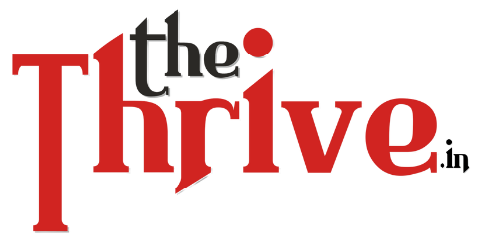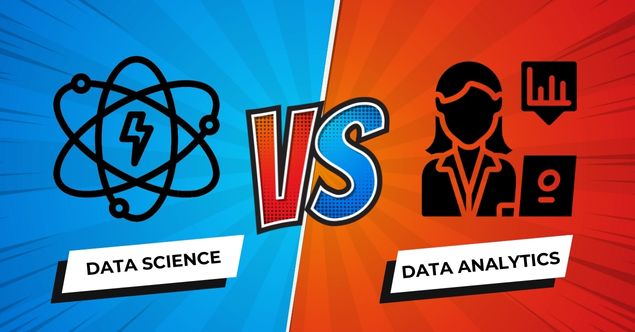How would you describe data science and analytics? Are they synonyms or two completely separate concepts? And what sets them apart from each other?
Today’s businesses face multiple challenges related to data processing and storage. From identifying trends to discovering new patterns, companies across industries rely heavily on data analytics tools and techniques. In other words, they require analysts to analyze vast amounts of data and figure out what it means.
A data Analyst deals with solving problems, and a data scientist identifies the problems and then solves them. Firms hire Data Analysts in order to solve their business problems.
The role of a data analyst is to find trends in sales or usage of summary statistics for a description of customer transactions. On the other hand, a data scientist not only solves problems but also identifies problems. Let's see what is the difference between them.
What is Data Science?
Data science is a concept used to manage massive data and includes data cleansing, preparation, and analysis. A data scientist gathers data from multiple sources and applies machine learning, predictive analytics, and sentiment analysis to get information from the collected data.
They understand data from a business point of view and can give you accurate predictions and insights that can be used to power critical business decisions. Data science is the field of study that combines domain expertise, programming skills, and knowledge of mathematics and statistics to get informative insights from data.
What is Data Analytics?
Data analytics is the science of analysing raw data, descriptive statistics, visualising data, and communicating data points for conclusions about the information.
Many techniques and processes of data analytics have been automated into mechanical methods and algorithms that work over raw data for human exhaustion. They must have a basic understanding of statistics, a perfect sense of databases, the ability to create a new point of view, and the perception to visualise the data.
Data Science vs. Data Analytics: Difference
Data Science and Data Analytics deal with Big Data, each taking a unique method. Data Science is an umbrella that covers Data Analytics.
Data Science is a combination of multiple disciplines – Mathematics, Statistics, Computer Science, Information Science, Machine Learning, and Artificial Intelligence.
It also includes, data mining, inference, predictive modelling, and ML algorithm development to extract patterns from complex datasets and transform them into actionable business strategies.
While Data Science has meaningful correlations between large datasets, Data Analytics is designed to uncover the specifics of extracted insights. It is a branch of Data Science that focuses on more specific answers to the questions that Data Science.
Data Science seeks to discover new and unique questions that can drive business innovation. In contrast, Data Analysis aims to find solutions to these questions and determine how they can be implemented within an organization to foster data-driven innovation.
Data Scientist and Data Analyst while a data analyst deals with solving problems, a data scientist identifies the problems and then solves them. Data Analysts are hired by companies to solve their business problems.
The role of a data analyst is to find trends in sales or usage of summary statistics for a description of customer transactions however, a data scientist not only solves problems but also identifies problems
Another essential difference between a data scientist and a data analyst is the difference in handling data. Data Analysts make use of SQL queries to retrieve and manage structured data. However, Data Scientists also use NoSQL for unstructured data. Therefore, data scientists are responsible for managing unstructured and structured data.
Job roles of Data Scientist and Data Analyst
1) Data Scientists
Processing, cleaning, and validating data integrity.
Performing exploratory data analysis on large data sets.
Performing data mining by creating ETL pipelines.
Perform statistical analysis using ML algorithms such as logistic regression, KNN, etc.
Writing code for automation and creating ML libraries.
Gaining business insights using ML tools and algorithms.
Identifying new trends in data to create business forecasts and predictions.
2) Data Analyst
Collecting and interpreting data.
Recognize relevant patterns in a data set.
Perform data queries using SQL.
Experiment with analytics tools such as predictive, prescriptive, descriptive, and diagnostic analytics.
Using data visualization tools such as Tableau, IBM Cognos Analytics, etc to present extracted information.
Data Analyst vs Data Scientist - Skills
1) Data Analyst Skills:
Good understanding of statistics and probability.
Knowledge of Python programming and SQL.
Analyzing data with MS Excel.
Data wrangling.
Data wrangling.
2) Data Scientist Skills
A strong foundation in calculus, linear algebra, statistics and probability.
Proficient in programming in Python, SQL, R, SAS, MATLAB, and Spark.
Data visualization using Power BI.
Data wrangling and data modelling.
Machine learning and cloud computing.
Summary
Data Analytics and Data Science have long-term career potential, and big data and data science jobs have long been a safe career choice. This trend is likely to continue as AI and Machine Learning become highly integrated into our daily lives and economy.
Today, data is necessary for businesses to gather critical insights and improve business performance to grow in the market. A Data analyst or a Data scientist. These are the two most demanding job roles in this area as companies worldwide look to make the most out of data. In this article, you will come to know the difference.
FAQ's on Data Analyst & Data Scientist:
A Data Analyst role is better for those who want to start their career in the analytics sector. A Data Scientist role is for someone who wants to create advanced machine learning models and use deep learning techniques to ease human tasks.
A Data Scientist professional is one of the highest-paid individuals in the industry compared to Data Analysts.
No defined skill sets that can distinguish between the role of a 'Data Scientist and a Data Analyst.




